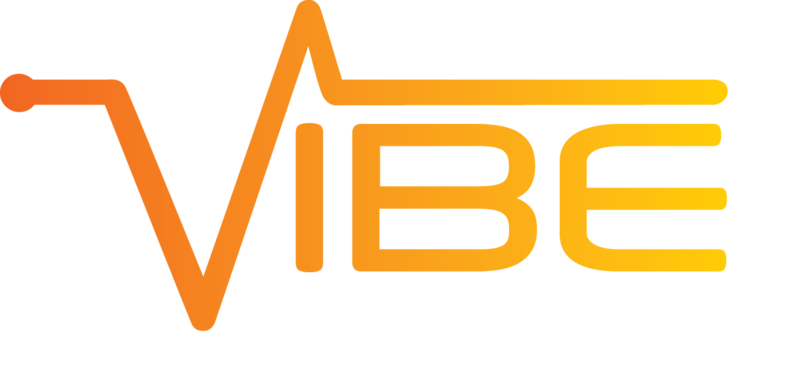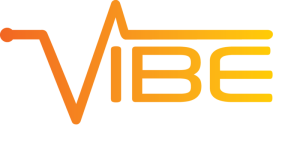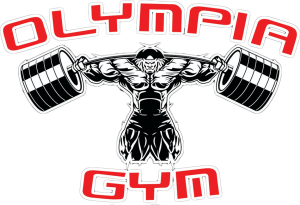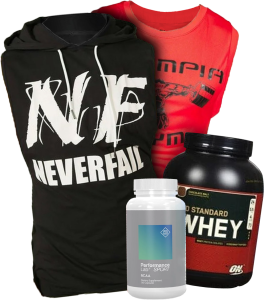Pre-Workout vs Post-Workout Supplements: What to Take & When

You’ve packed your gym bag, queued up your playlist, and are ready to crush your workout but have you thought about what’s fueling your body before and after you train? Whether your goal is to build muscle, boost endurance, or speed up recovery, what you take and when you take it can make all the difference.
That’s where nutrient timing comes in.
Pre-workout and post-workout supplements serve very different purposes. One gives you the energy to power through your session; the other helps your body bounce back stronger. But with so many options out there, it’s easy to feel overwhelmed.
In this blog, we’ll break down the key differences between pre- and post-workout supplements, explore the best options for each, and help you figure out exactly when to take them to get the most out of your training.
Understanding Nutrient Timing
In the world of fitness, what you take matters but when you take it can be just as important. That’s the power of nutrient timing.
At its core, nutrient timing is all about giving your body the right fuel at the right time to maximize performance, recovery, and results. And that’s where pre-workout and post-workout supplements come into play.
Pre workout supplements are your gym ignition switch. Taken 30–45 minutes before your workout, pre-workout supplements are designed to boost energy, endurance, strength, and mental focus. They prep your body and mind to give 100% during every rep and sprint.
On the other hand are post workout supplements. Once the workout ends, the recovery begins. Post-workout supplements help your body rebuild muscle, reduce soreness, and replenish lost nutrients. Taken within 30–60 minutes after training, they support muscle repair and set the stage for your next session.
Whether you’re lifting heavy, doing HIIT, or running long distances, knowing when to take your supplements is key to unlocking your full potential.
Pre-Workout Supplements: What They Are & Why You Need Them
Pre-workout supplements keep you from feeling tired, sluggish, or mentally checked out. They’re your fitness jumpstart, giving you the boost in energy, focus, and endurance you need to train harder and get more out of every session.
Whether you’re lifting weights, smashing out a HIIT workout, or hitting the treadmill, taking the right pre-workout supplement can help you push past limits and stay in the zone.
Key Benefits of Pre-Workout Supplements
- Increased Energy and Focus
Most pre-workouts contain ingredients that wake up your body and brain, helping you stay laser-focused through intense sets. - Delayed Fatigue
Fight off early burnout and power through those last few reps. Plus pre-workout ingredients reduce the buildup of fatigue-causing compounds in your muscles. - Improved Endurance and Blood Flow
Better blood circulation = better oxygen and nutrient delivery to working muscles, meaning you can go longer, harder, and with less struggle.
Common Pre-Workout Supplements
- Caffeine
A classic stimulant that enhances alertness, reaction time, and overall workout performance. - Beta-Alanine
Reduces lactic acid buildup, helping you train longer without the burning sensation that ends most workouts early. - Creatine
Boosts strength, increases power output, and supports explosive movements and are perfect for lifters and athletes. - Nitric Oxide Boosters (e.g. L-Citrulline, L-Arginine)
Promotes vasodilation (wider blood vessels) for a better muscle pump, improved nutrient delivery, and insane endurance. - BCAAs (Branched-Chain Amino Acids)
Help protect muscle tissue from breaking down too soon and are ideal during fasted training or longer sessions
Best Time to Take Pre-Workout Supplements
To maximize the benefits, take your pre-workout 20–30 minutes before you start training. This gives your body time to absorb the ingredients and kick into high gear by the time you hit your first set.
Post-Workout Supplements: What They Are & Why You Need Them

Once you’ve pushed through the reps, hit your cardio goals, and left it all on the gym floor, your body needs to recover. That’s where post-workout supplements play a crucial role. These targeted nutrients help your muscles rebuild, recover, and grow stronger, making sure your hard work actually pays off.
Optimising your post-workout nutrition not only supports muscle recovery and repair, but also helps reduce muscle soreness, replenish energy stores, and prepare your body for your next training session. Whether you’re a seasoned athlete or new to fitness, the right post-workout supplements can accelerate your progress and prevent burnout.
Key Benefits of Post-Workout Supplements
- Promotes Muscle Repair and Growth
After intense training, your muscles experience microscopic tears. Post-workout supplements provide the essential amino acids and nutrients needed to kickstart the muscle protein synthesis process. - Replenishes Glycogen Stores
During workouts, your body uses glycogen (stored carbohydrates) for energy. Replenishing those stores post-exercise supports recovery and performance in future workouts. - Reduces Muscle Soreness and Speeds Recovery
Proper recovery nutrition can reduce DOMS (Delayed Onset Muscle Soreness) and improve training consistency over time.
Common Post-Workout Supplements
- Whey Protein
Known for its rapid absorption and high leucine content, whey protein is ideal for post-exercise recovery. It supports muscle synthesis, making it a staple among athletes and lifters alike. - Creatine
While many use creatine pre-workout, research shows that post-workout supplementation can help restore depleted levels and improve long-term muscle growth and strength. - Carbohydrate Powders (e.g., Dextrose or Maltodextrin)
Simple carbs consumed post-exercise help rapidly restore glycogen and stimulate insulin, enhancing nutrient uptake by muscle cells. - Glutamine
This is an amino acid that supports immune function and muscle recovery, especially during periods of intense training or caloric deficit. - Electrolytes
Sweating depletes essential minerals like sodium, potassium, and magnesium. Replenishing these via electrolytes helps prevent cramps and supports muscle function and hydration.
Best Time to Take Post-Workout Supplements
The ideal window to take post-workout supplements is within 30–60 minutes after exercise. This is when your muscles are most receptive to nutrient uptake, a period often referred to as the “anabolic window.” Quick, high-quality nutrition during this time promotes better recovery and growth.
Can You Take the Same Supplement Pre & Post?
This is a question most are confused about. Some supplements like creatine and BCAAs can be taken both pre- and post-workout, but their effects vary based on timing.
When taken before training, creatine helps enhance strength and power output, while post-workout it aids in replenishing muscle stores and supports long-term muscle growth. Similarly, BCAAs before exercise can reduce muscle breakdown and delay fatigue, whereas post-workout they assist with muscle recovery and soreness reduction.
These dual-function supplements offer flexibility depending on your fitness goals, making them ideal additions to both ends of your workout routine for improved performance and faster recovery.
How to Choose What’s Right for You
With countless options on the shelves, choosing the best workout supplements can feel overwhelming. The key here is to tailor your supplement stack to match your fitness goals, lifestyle, and body’s needs.
- For Muscle Gain: Focus on proven supplements like whey protein, creatine, and BCAAs to support muscle growth, strength, and recovery.
- For Endurance: Opt for electrolytes, beta-alanine, and carb-based supplements to fuel longer sessions and reduce fatigue.
- For Fat Loss: Choose stim-based pre-workouts for energy and BCAAs to preserve lean muscle during calorie deficits.
Also, consider personal factors:
- Caffeine tolerance: If you’re sensitive, go for stim-free pre-workouts.
- Dietary preferences: Vegan or dairy-free? Look for plant-based proteins and vegan BCAAs.
- Training intensity: The more intense your workouts, the more support you’ll need from recovery-focused supplements like glutamine or creatine.
The right supplement routine isn’t one-size-fits-all, it’s a strategy that aligns with your goals and helps you train smarter, recover faster, and perform better.
Sample Supplement Routine
To help you put theory into practice, here are two sample supplement routines tailored to different training times. Whether you’re a morning exerciser or prefer hitting the gym in the evening, these examples show how to structure your supplement intake to support both performance and recovery.
Morning Gym-Goer Example
For those training early in the day, the focus should be on quickly boosting energy levels and ensuring fast-absorbing nutrients post-exercise to kickstart recovery.
Pre-Workout:
- Coffee – A natural caffeine source to increase alertness and performance.
- Beta-Alanine – Helps buffer lactic acid, improving muscular endurance.
- Creatine – Enhances strength and power output during high-intensity exercise.
Post-Workout:
- Whey Protein – A fast-digesting protein that promotes muscle protein synthesis.
- Banana – Provides simple carbohydrates to replenish depleted glycogen stores.
- Glutamine – Supports muscle recovery and immune system function.
Evening Lifter Example
If you prefer working out later in the day, it’s wise to avoid stimulants that may disrupt sleep. This routine focuses on clean energy and effective recovery without overstimulation.
Pre-Workout:
- Stim-Free Pre-Workout Formula – Offers non-caffeinated ingredients to enhance focus and endurance.
- Citrulline – Boosts nitric oxide production for improved blood flow and muscle performance.
Post-Workout:
- Protein Shake (Whey or Plant-Based) – Aids in muscle repair and recovery.
- Oats – A source of complex carbohydrates to restore energy levels.
- Electrolyte Tablet – Replenishes minerals lost through sweat and supports hydration
Final Thoughts
Maximizing your workouts isn’t just about what you do in the gym, it’s also about how you fuel your body. Pre-workout supplements give you the energy, focus, and endurance to train harder, while post-workout supplements help your muscles recover, repair, and grow stronger.
Timing is everything, and choosing the right supplements based on your goals can make a noticeable difference in your progress.
References
- Spradley, B. D., Crowley, K. R., Tai, C. Y., Kendall, K. L., Fukuda, D. H., Esposito, E. N., … & Moon, J. R. (2012). Ingesting a pre-workout supplement containing caffeine, B-vitamins, amino acids, creatine, and beta-alanine before exercise delays fatigue while improving reaction time and muscular endurance. Nutrition & metabolism, 9, 1-9.
- Flakoll, P. J., Judy, T., Flinn, K., Carr, C., & Flinn, S. (2004). Postexercise protein supplementation improves health and muscle soreness during basic military training in Marine recruits. Journal of Applied Physiology, 96(3), 951-956.
- Jagim, A. R., Harty, P. S., & Camic, C. L. (2019). Common ingredient profiles of multi-ingredient pre-workout supplements. Nutrients, 11(2), 254.
- Hamarsland, H., Nordengen, A. L., Nyvik Aas, S., Holte, K., Garthe, I., Paulsen, G., … & Raastad, T. (2017). Native whey protein with high levels of leucine results in similar post-exercise muscular anabolic responses as regular whey protein: a randomized controlled trial. Journal of the International Society of Sports Nutrition, 14, 1-12.
- Silva, C. P. D. (2024). Impacto do uso de creatina no desempenho de praticantes de futebol: uma revisão narrativa.
- Cruzat, V., Macedo Rogero, M., Noel Keane, K., Curi, R., & Newsholme, P. (2018). Glutamine: metabolism and immune function, supplementation and clinical translation. Nutrients, 10(11), 1564.
- Montain, S. J., Cheuvront, S. N., & Lukaski, H. C. (2007). Sweat mineral-element responses during 7 h of exercise-heat stress. International journal of sport nutrition and exercise metabolism, 17(6), 574-582.
- Kerksick, C. M., Arent, S., Schoenfeld, B. J., Stout, J. R., Campbell, B., Wilborn, C. D., … & Antonio, J. (2017). International society of sports nutrition position stand: nutrient timing. Journal of the international society of sports nutrition, 14, 1-21.
